(176 products available)












































































































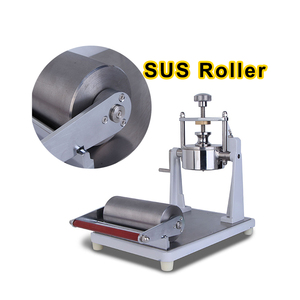
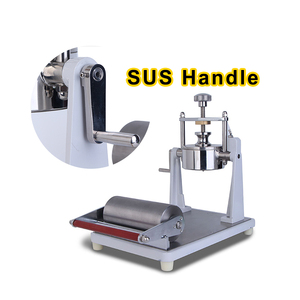
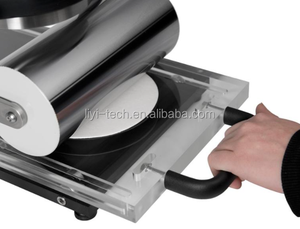
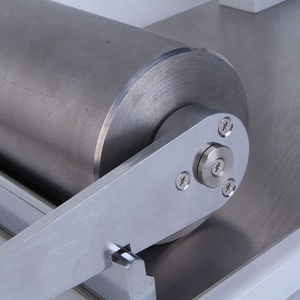
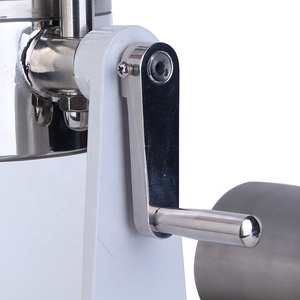
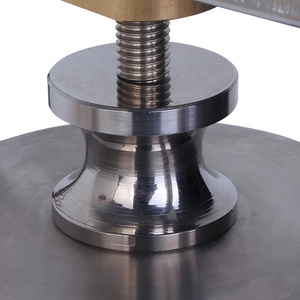























































Suppliers offer these cobb testers in types to buyers in large quantities.
With user-friendly features, the digital Cobb tester outperforms analog versions in speed and precision by instantly giving readouts and improving data storage for larger tasks. Auto functions cut errors, boosting work in busy settings or factories where quick, exact results drive productivity.
The Cobb tester kit, built for do-it-yourself practices, equips users with all tools needed for measuring water absorption in paper and cardboard without hiring experts. The kit makes testing simple and clear, perfect for small businesses or those outside the paper sector who need to check packaging strength.
Small and helpful, the portable Cobb tester is right for quick checks on building or paper sites where sensing the moisture uptake of materials in real time is a must. Working without power, it helps teams find any problems on the spot, cutting the time it takes to report and acting fast. Its compact design ensures ease for fieldwork.
With simple parts and less cost, the manual Cobb tester is still strong for giving precise readings about how much water paper absorbs, though it needs more time and care. It suits labs or small firms where power does not reach and hands-on work keeps testing true.
The tester featuring several cups helps users test many samples at once, speeding up work in big plants or labs. This model suits busy places where time is key, cutting long checks by letting users run tests on more than one sample at a time.
When choosing a Cobb tester, buyers need to think about these key features.
Accuracy ranks as a key factor, and the Cobb tester must give clear readings about how much liquid paper or board takes in. Verified tools lower error chances and boost output by assuring correct numbers for every check.
The size of a Cobb tester cup affects performance. Larger cups allow broader checks, making them fit for big jobs. This lets firms test more at once, saving time and meeting the needs of large workspaces where speed is needed.
The rate at which the tester completes its work matters in busy spaces where every second counts. A quick tester cuts the time spent on each job and allows more work in less time.
The materials used in a Cobb tester help decide how long it lasts. Strong equipment handles harsh factory work and lasts longer than weaker designs in tough settings. It cuts the need for frequent updates.
Buyers should check if testers meet industry rules, such as those set by the TAPPI or ISO. Meeting these checks means the tester is useful across many fields and keeps companies safe from any legal risk tied to not meeting set rules.
Simple controls and clear steps help reduce errors from improper use and allow many staff levels to operate the tester with little training. This also helps in limiting the time spent learning the machine.
The ease of cleaning and upkeep of a Cobb tester helps keep it working well over years. Models with low care needs cut downtime and keep work moving by reducing the need for repairs and checks.
These are some of the ways Cobb testers are used commercially.
The Cobb tester acts as a vital tool in the packaging field where paper and cardboard strength matter. By measuring how much water paper absorbs, it shows how well the material resists wetting during transport and storage. This helps firms pick the right material to prevent damage to products.
Printers use Cobb testers to select paper that gives top print results. By showing how paper handles ink and moisture, the tester helps avoid problems like ink running or poor print quality. This leads to better work on the press and sharper images and text on the finished product.
In this field, the Cobb tester helps boost board resistance to wetness. It allows makers to form board with higher strength for boxes used in moist areas. This resistance keeps boxes safe and secure during use in harsh weather or with wet products, raising their worth and use.
The building field relies on the Cobb tester to check paper-based insulation and roofing materials. By measuring how much water the material takes in, the tester helps builders pick the best options to keep homes dry and shielded from the weather. This keeps building work on track for safety and strength.
Producers of devices use Cobb testers to check the paper used in their device packaging. The tester acts as a quality gate by ensuring the material can resist wetness during shipping and storage. This step stops future damage to the device and keeps its condition intact from factory to user.
In fiberboard making, Cobb testers keep track of board response to wetness. By boosting fiberboard strength, the tester makes it useful for home building or business construction work. Sturdy boards resist moisture better, making the final product last longer in tough or rainy places.
Buyers should use these tips to help them when selecting Cobb testers in bulk.
There are several types, and each serves a unique need. Paper and package users may pick a digital or manual tester, while those needing mobile work may choose the portable one. Understanding the business's specific task helps in choosing the right one.
Look at the size of the testing cup to know how much paper or board it can check at once. Larger cups allow bigger tests in less time, suiting factories that carry out large tasks. A big testing capacity lowers the number of repeat tests, saving time.
Choose testers with clear controls and steps to boost the work rate. Simple testers reduce mistakes from using the tool and allow many staff levels to run the device with little training. Simple upkeep also helps keep work smooth.
Set a budget before pouring money into the purchase. Cobb testers come in a wide price range, so finding one that fits the budget is important. Balancing cost and quality means finding a device that meets the need without breaking the bank.
Before buying, checking what other users say about the tester builds trust in the product. Know what users say about how well it works and if it lasts. Choosing a tool with a strong review base supports good results and buyer satisfaction.
A1: A Cobb tester has metal, glass, and rubber parts to make it strong. The main ring is often stainless steel, and the cup may have glass or clear plastic. Tough rubber seals keep it working in wet or humid spots. These materials help the tester last longer in hard places.
A2: Recent testers now check more things like wetness and are easier to use. Many have digital screens to make tests faster and save data. Companies also want portable testers for quick checks on the go. Users are also looking for testers that require less cleaning.
A3: Most Cobb testers do not work in heat like labs and factories. These places often add heaters or coolers to the tester to suit the job. These changes keep the tester right for the work in both hot and cold spots. Users need to ensure the tester can work in their weather.
A4: Yes, testers work in many other fields too. Builders use them to check insulation and roofing materials. Print shops also rely on them to make sure paper can handle ink. They help any job where water or liquid interacts with paper or board.
A5: A digital tester speeds up the test by taking in the values automatically. It shows the numbers on an easy-to-read screen. Some models also save the values in memory, making it fast and clear. This cuts time and keeps the work moving.